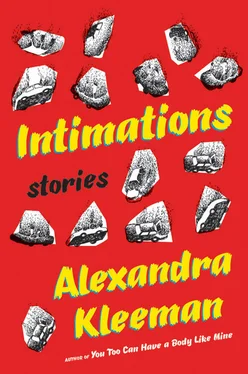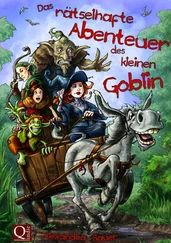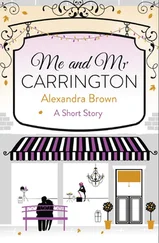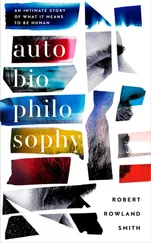— EMILY POST, The Personality of a House
It is best to read the weather forecast before we pray for rain.
— MARK TWAIN
When a father returns to empty shelves, empty cupboards, and a family that can only sit there, parched, playing one of many games centered around counting to larger and ever larger numbers, he will retrieve the luggage that he has brought back with him, bring the brown suitcase, the suitcase with two brass latches, opening it up before our eyes to reveal that it is full of snow.
Before our eyes he opens it up, his hands slip back the two latches in clean sound, and then the snow seen against a silk lining, paisley-printed, all the snow glaring back the lamps and shaming our house with the brilliance of things that belong outside it.
The snow is what sand would be if it could forget its material, if it could forget its hardness, roughness, if it could forget its own weight. And the snow is what we would be if we could forget ours. If we could become the things we pretend instead of merely pretending at them, playing over and over at a game of falling silent and soft from couch to floor, making ourselves silent and soft as we can, playing at being snow, playing until our elbows and sides are too sore to move.
Before our eyes he makes small motions at the contents of the suitcase, and the snow begins to fill out, piling the table and over the table to the floor. Then we are in up to our knees.
The weather is beautiful through the windows of our house, you could take it for a painting. With an ear pressed to the window, it speaks, stutters, moist noises like someone in a form of forced sleep.
Right now it rains. Water throws itself against our windows, sideways with the force of the wind. It makes the things outside melt, dripping off gelatinous blots of their own color. How wonderful to be able to melt the shape from things that belong so smugly to themselves. To be the outside itself, or to reach for it and feel something without the flat touch of glass.
Father proclaims man and weather natural enemies, and suddenly we are. In motion his mouth laps at the air, takes into it the world we have been presented with and passes it out again, deformed. Pressed against tongue, teeth, the sounds fall out marked by indentations from human molars. They take shapes that imply our own deformation, that cause us to turn over the words in our own mouths, heavy and cold like a mouthful of marbles that taste of the hands of other children.
Father names the body of man a device for sculpting weather more weatherlike, less crazed, a device for disciplining the air. He walks out into the daylight shaking damaged equipment toward the mild sky. As hollow tubes spill from his arms, as springs jerk wildly, taut and loose, flinging themselves like a ruined cartoon body, knotted together and dancing. His voice going on without punctuation without pause about the ruined possibilities of his invention, his invention a device intended to transform one thing into another, that takes it away from itself and makes it one’s own, as my father to the weather or my mother to her projects of paper and thread. In the partial daylight, a father fills up with shadow, standing as a silhouette of a machine shuddering up and down as it works, wobbly, clanking against itself, a machine for the production of heat and noise.
My father, certain that internal forms of weather can be used to influence the external. My father under the big sky, shouting at clouds. We watch him through a window. We play rain, rubbing our hands and faces all over the smooth surfaces of the furniture.
We have invented a meter to measure the accumulation of time, a machine capable of producing detailed descriptions of the air. We have invented a method of extracting still water from rain and for shaming sleet and slush into legible forms of precipitation, forms a child could draw.
The surface of our home is a single block of shatterproof plastic. There is a single flaw in the surface of our home through which we would enter or exit, a thing we rarely do.
Air enters the flaw of a body and presses through into ever-deeper regions, traveling from oral reservoir to tracheal passageway to the lungs, which resemble small rooms. This is illustrated in a diagram fixed to the dining room wall, which is designed to remind us to keep food and air passages separate. In this diagram, a frog sits in a glass-sided tank. The frog is a cross-section, and air is a blue arrow traveling into its body. In the diagram to its right, the arrow is red, and represents food traveling the same path to the lungs. I point to this second frog, which is dead.
“Many thousands of years ago, the world’s surface was covered with small, thoughtless beings whose deaths held no consequences. In the terrible storms of lava and rain that occurred before the climate had come to a form of sense, they died and multiplied like a storm in themselves, flourishing haphazardly and then collapsing into a pit or whatnot where their lungs filled with the syrupy weight of their own liquefied ancestors. They lived like the weather, like a smattering of problems unforeseen but urgent, and they died, too, like the showers or sunlight: a brief seizure with no purpose, no understanding of their own duration.”
A necessary flaw belongs somewhere between an error and a mistake.
Our device to control the weather fails to control anything at all.
We play a game based upon the weather, it begins in the living room. We stand in the middle, looking around. One player will ask, “Do you think it’s going to rain?” and the other will answer. I hold out my hand.
“I think I feel some drops, just a few.”
Look up at the ceiling, search it for clouds. Describe the color of the clouds and their shape. This one like a duck, that one like an anvil.
Demonstrate surprise.
Cirrus clouds indicate cold weather if they move from left to right. Cumulus clouds indicate rain if they are gray, stacked, or have grown taller throughout the day. Stratus clouds can bring snow flurries or storm. A cloud shaped like an anvil impends.
Describe the direction of their movement. Describe their speed.
I open an imaginary newspaper.
The newspaper opens like wings, makes their sound.
Gray squares tremble against the air.
“It says there’s a thirty percent chance.”
We watch the ceilings, and the minutes remove themselves.
This device is a vaporizer. It is for clouds, sunshine, temperature, and wind. It is also for plants and other living things.
When I say it is for them, I do not mean that it is good for them.
This device is heavier than almost anything. It has a case made of metal stuck through with tubes leading from one place within it to another. No matter how hard you lean against it, it does not sway. No matter how hard you kick it, it does not respond to or do anything. Under no circumstances is it to be kicked or pushed.
When the rain falls, bit by bit it becomes broken. I watch the rain falling on it, falling on its body and its back, falling into the funnel from which it acts out, falling all over it so it makes a sound like a thousand drums and I know suddenly that as heavy as it is, it is hollow past the shell. All is different kinds of gray. It gives off small stars as the rain knits it in water.
What our family has done, the rain undoes in a matter of minutes. The color of the sky and the ground, it undoes. Undone, the dryness and smooth feeling of the air. If it could undo also the year or two years that have come before, would we be as we were, or would we be something new, wetter?
Читать дальше












